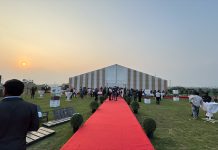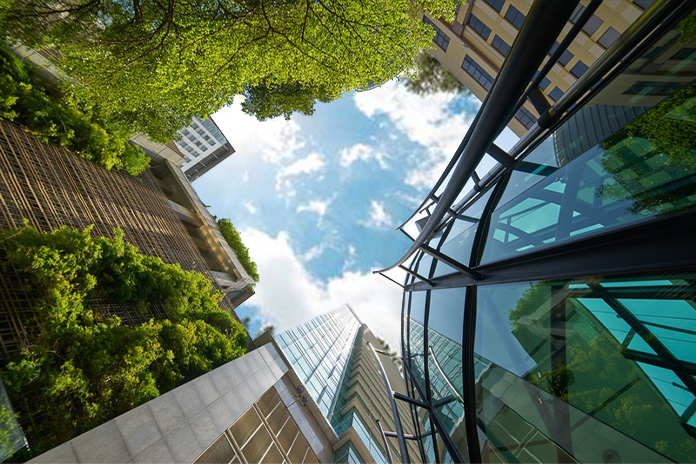
CLIMATE variability is appearing more extreme and widespread, as evidenced by the more frequent and severe weather events.
It is a growing concern as it impacts ecosystems, economies and communities worldwide. Given the increased weather fluctuation, the phrase “weather patterns” has probably become a misnomer. We should expect weather forecasters to be even less accurate than before.
In an evolving urban landscape that is enveloped by erratic climate conditions, Singapore claims to be at the forefront of progress, consistently pushing the proverbial bar higher for sustainability, infrastructure and urban development.
As announced by EnterpriseSG and reported in the media in September 2023, the Singapore Standards Council (SSC) and the Singapore Accreditation Council (SAC) have developed 108 sustainability-related standards and accreditation programmes.
Despite the plethora of scorecards that companies could rely on to improve business sustainability, evidence of actual climate positive results seem scarce. Businesses that are not pushing for higher profit, measured in dollars and cents are too preoccupied with rising costs and with survival. Protecting Mother Earth? That can come later.
ALSO READ: The Psychology Behind Making Decisions
SG Climate Rally 2023
The organisers of the SG Climate Rally 2023 held on 23 September called for government action to “accelerate the transition” by making the roadmap from fossil fuels to renewable energy more transparent and ambitious. They advocated “strengthening carbon tax, investing in green and public transportation and mandating carbon reduction targets for large companies”.
I support the call to accelerate the transition. Despite the glowing publicity, Singapore has a lot of catching up to do. For example, 80% of new cars sold in Norway are electricity-powered, but here only 13% of passenger cars sold between January and May 2023 were EVs.
A high adoption of electric vehicles (EVs) would leave our streets with less pollution.

More Electric Public Transport
As a public transport user, I loathe to suffer the wafts of hot smoke from buses accelerating away from bus stops. In addition, EVs will lower noise pollution from buses, cars and motorcycles, reducing the stress and anxiety for urban dwellers. The Land Transport Authority could speed up the replacement of old buses with those powered by electricity.
While I am all for down-to-earth, practical solutions that bring concrete results, I remain sceptical about nebulous concepts such as “strengthening carbon tax” and “mandating carbon reduction targets”.
Do educated financial investors, policy makers and Mr Joe Public understand the science behind climate change? We know what is a litre of water when we pay for its use.
But what is a tonne of carbon? How is carbon measured? What about carbon dioxide? Measured by whom and using what rulers?
How do we count carbon that is embodied, emitted, embedded, operational, primary or secondary? What do the targets and baselines measure? Can we use the scorecards from SSC and SAC?
The Short-Lived Buildings Dilemma
Globally, activities around real estate account for about 40% of carbon emissions.
In Singapore, buildings alone account for more than 20% of carbon emissions. As a highly urbanised country, Singapore supports the 2030 Agenda for Sustainable Development and aims to contribute positively to the 17 goals and 169 targets of the United Nations Sustainable Development Goals (UN SDG).
However, a look at construction activities and real estate development policies in Singapore reveal some disconcerting events that question the industry’s sincerity and commitment to sustainability and responsibility towards future generations.
A kilometre away from world-renowned shopping street Orchard Road stands a telling example: Grange Court at 74 Grange Road.
ALSO READ: Fleeing Jerusalem — A First-person Account
Construction of Grange Court was completed in 1992, and 16 years later, in 2008, it was demolished and was the construction site for a new residential block named iLiv@Grange.
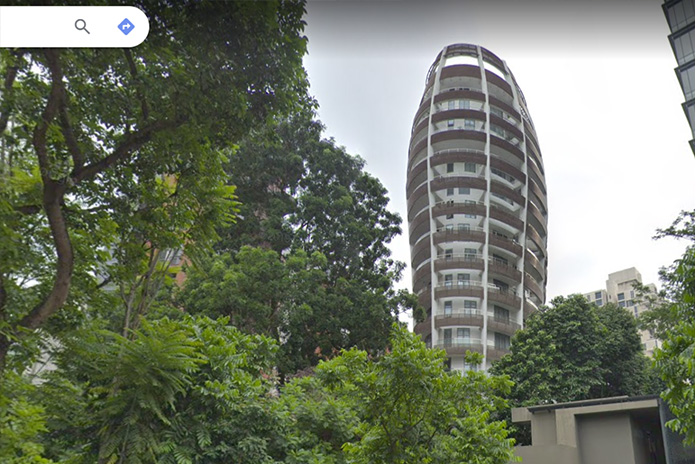
Apartments in this “YOO inspired by Starck” designer project could not find buyers and while it was home to some tenants for a brief period of time, the 30 units in this apartment block were largely vacant.
14 years later, at the end of 2022, iLiv@Grange itself faced the wrecking ball.
Yet another new building, named Grange 1866, is now under construction.
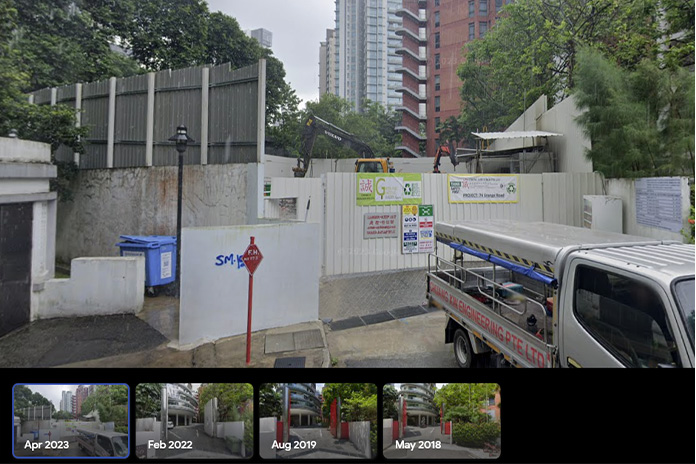
Jurong Entertainment Centre was completed in 1993 and 16 years later, in late 2009, it was demolished. The new building, named JCube, was opened in early 2012 but just 11 years later, in August 2023, it was closed for subsequent demolition.
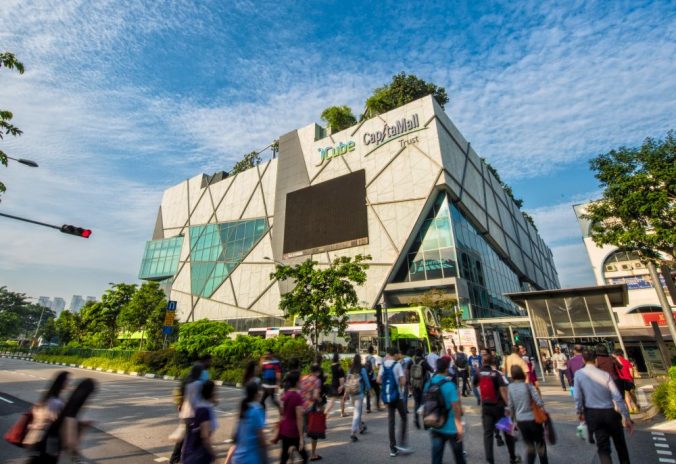
In its place will be a new condominium J’den. Ironically, JCube was awarded Green Mark Platinum by the Building and Construction Authority for demonstrating energy and water savings, as well as environmentally sustainable building practices and innovative green features.
Much ink and angst have been wasted on such irony and hypocrisy, including recent extensive tree cutting in Kranji, Dover and 31 hectares (or 3.34 million sqft) at Bayshore.
ALSO READ: The Rise And Rise Of COE Prices
Any Sustainability Commitments?
These examples clearly oppose Singapore’s commitment to the UN SDGs and make a joke of the “Singapore Built Environment Embodied Carbon Pledge” by the Singapore Green Building Council (SGBC). Tearing down buildings at the 74 Grange Road site three times within about 32 years (circa 1990, in 2008 and then in 2022) infringes several UN SDG goals:
SDG 11: Sustainable Cities and Communities
One of the glaring infringements is that short-lived buildings and their frequent demolitions and reconstructions in urban areas pollute the neighbourhood with traffic, noise and dust. This impedes the building of urban identity and undermines social cohesion. Urbanization is only sustainable if we can create urban landscapes that are enduring, resilient and adaptable.
SDG 12: Responsible Consumption and Production
The construction and demolition cycles associated with Grange Court, iLiv@Grange, and Grange 1866 are undesirable from the perspective of responsible consumption and production. These activities contribute significantly to material and energy wastage with damaging environmental impact.
SDG 13: Climate Action
This goal urges everyone, especially those involved in real estate and construction, to mitigate the effects of climate change, reduce greenhouse emissions and adopt sustainable construction practices, with a focus on energy efficiency, and reduced emissions (and waste!).
Unaccounted Damages
A lot more resources are wasted at the launch of new properties for sale than we care to admit. When assessing a property development for its embodied carbon, we conveniently forget to attribute the energy and material resources related to the temporary show flats (usually built and demolished within 2 years), the marketing material, mailers and flyers, glossy brochures, social media campaigns and other events related to the sales of the apartments.
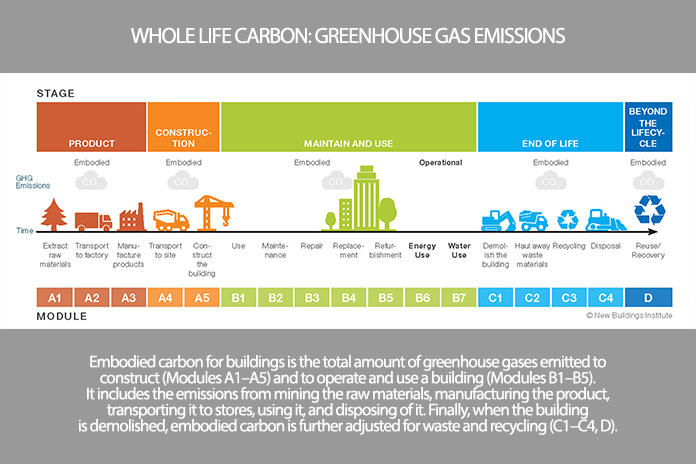
ALSO READ: From Dishwasher To Restaurateur
Concrete Actions Needed
Our commitment to sustainability cannot be mere lip service; it has to be evident in our actions. Short-lived buildings that disregard responsible consumption, production, and climate action imperil our sustainable development goals. This includes show flats and properties developed on land with short leases.
We need to act in line with the intent and substance of the UN SDGs, not just follow the form. For this, I propose common sense policy solutions rather than the hazy methods of carbon or carbon dioxide counting and taxation which inadvertently results in greenwashing.
1. New En Bloc Rules
First off, the en bloc rules for demolition and redevelopment of buildings should be tightened. Unless there are structural or exceptional issues, buildings below 20 years of age should not be approved for demolition.
En bloc sales of buildings less than 30 years of age should require the approval of at least 90% of the owners while buildings 30 years and older may proceed after at least 80% of owners have signed off.
Applications for demolitions of buildings should include an environmental impact assessment with justifications that should be open for public consultation and debate. These redevelopment proposals should include a commitment to reuse construction waste with justifications for building temporary show flats.
ALSO READ: The M3 Touring Takes You Places In Style
2. Short Land Leases
Second, policy makers should review the practise of government land sales and lease terms of less than 30 years.
Of the 107 industrial sites sold by the JTC in the last 10 years, only 20% came with 30 years of lease. The other 80% had shorter leases of between 20 to 23 years.
Take away the two years of design and construction time, as well as the six months at the tail end of the lease required for demolition and reinstatement of the land, the useful life of the buildings cannot reach 20 years. We need to balance the need for manufacturing to remain nimble in the face of technological progress, with the volume of construction waste produced as a result of short land leases.
3. Boost Skills
Third, policies should be enacted to boost our real estate industry’s skills and capabilities in the area of “adaptive reuse” of buildings.
The Urban Redevelopment Authority has occasionally highlighted this in their public engagements. However, adaptive reuse should not be mistaken as being confined to the repurposing of old or heritage buildings. A 15-year-old electronics or biotech factory that has been made obsolete by technological progress could be adapted and reused for other forms of manufacturing and logistics instead of being torn down when the 20-year lease expires.
Industry players and policy makers need to collaborate and build a Singapore that truly demonstrates its commitment to sustainability. Our legacy should be one of thoughtful stewardship of resources and a commitment, backed by concrete action, to create a sustainable and resilient city for future generations.
Ku Swee Yong is the Director of real estate consulting firm International Property Advisor Pte Ltd. His seventh book Getting Started In Alternative Investments, is available online and at all good bookstores.






